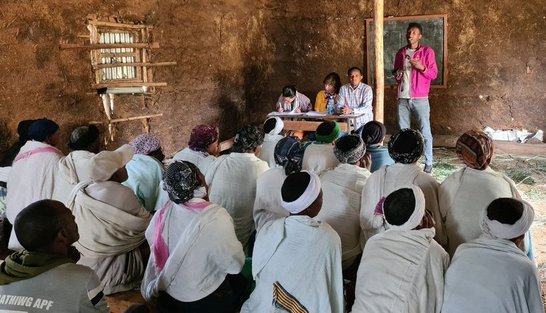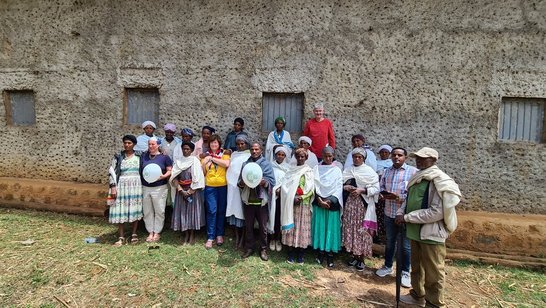Rural Womens Right to Access to Land in North-West Ethiopia: Challenges and Limits | WA2Land

Cooperating countries: Ethiopia and Austria
Coordinating institution: BOKU University
Partner institutions: Debre Markos University
Project duration: 1 September 2021 - 31 September 2025
Budget: 34.950,00 €
Project summary
Debre Markos University (DMU), Ethiopia, and University of Natural Resources and Life Sciences (BOKU), Austria jointly elaborated this project proposal. The key objectives of the proposed research are the reduction of gender inequalities and the improvement of women’s wellbeing in North-West Ethiopia. This will be achieved by problem-solving research. Another objective is the prolongation of the existing North-South partnership between DMU and BOKU by sharing knowledge, experience, and skills on the proposed topic.
Despite some normative and institutional set up made to prevent gender inequalities in access to land and other property, women in north-west Ethiopia are still denied human rights due to traditional and/or social customs. In the study area, the patriarchal society coupled with male-dominated systems also contributes to the violation of women’s rights.
The proposed research activities will identify and analyze the challenges, limits, and status of women’s rights to access to land through empirical study. Mixed research methods of both qualitative and quan-titative will be employed. BOKU will contribute in employing advanced research methodologies and data analysis techniques as well as sharing experiences to the community through seminars and training that will be helpful to change the mindset of the community.
This research project will contribute towards SDGs with a focus on gender equality (SDG 5). The re-search project will also contribute to SDG1: No poverty; SDG 2: Zero hunger; SDG3: Good health and well-being, SDG10: reducing inequality within and among countries; SDGs 17: Strengthen the means of implementation and revitalize the global partnership for sustainable development. The results of the research project will be disseminated using various mechanisms including but not limited to publica-tions in reputable journals, pamphlets, local community radios and TVs and, institutional official web-sites, and various seminars.

